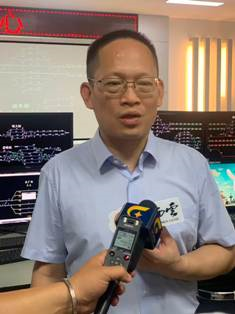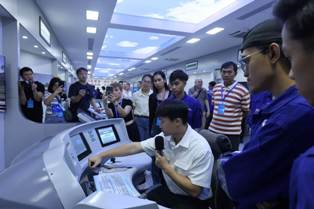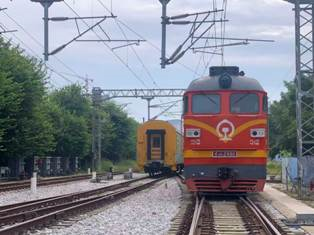ຂປລ
Nearly twenty Lao students have graduated from the Liuzhou Railway Vocational Technical College (LRVTC) since the college began its internationalization efforts in 2015, according to Qin Haibo, President of LRVTC, during an interview with Lao News Agency.

Qin Haibo, President of Liuzhou Railway Vocational Technical College
(KPL) Nearly twenty Lao students have graduated from the Liuzhou Railway Vocational Technical College (LRVTC) since the college began its internationalization efforts in 2015, according to Qin Haibo, President of LRVTC, during an interview with Lao News Agency.
Located in Liuzhou, a major industrial city in China’s Guangxi province, LRVTC is the only vocational college in Guangxi specializing in railway education. It has welcomed Lao students for the past two years as part of its broader effort to support talent development in ASEAN countries, particularly those involved in the Belt and Road Initiative (BRI).

To date, 16 Lao students have successfully completed their studies at the college. Many of them have already begun contributing to the railway sector in Laos. Notably, Du Wang, a 2024 graduate, is now working as a shunting assistant driver on the Vientiane-Boten section of the China-Laos Railway.
“Some graduates are working with the Laos-China Railway, while others have joined private companies in the sector,” Qin noted.
The college offers one of the most comprehensive railway training programs in China, covering the full industrial chain of six major railway systems. Its curriculum is tailored to meet the needs of developing railway infrastructure in ASEAN, with a special focus on China-ASEAN cooperation in rail transit, intelligent manufacturing, and new energy vehicles.

Head of the International Program in Railway Vehicle Technology, Zhang Haowei, emphasized the importance of standardization in international railway development. “To promote coordinated development, we advocate using China’s standards—such as standard gauge, electrification, and maintenance systems. This helps reduce technical barriers and improves interconnectivity across countries,” Zhang explained.
LRVTC plays a crucial role in equipping ASEAN countries with the skills and knowledge needed to operate their growing railway networks. As China has developed the world’s largest railway network, both in length and infrastructure, the college serves as a key platform for sharing China’s expertise and advancing railway cooperation across the region.
The success of Lao students at LRVTC reflects growing educational and technical collaboration between China and Laos, especially as the China-Laos Railway continues to transform regional connectivity and economic integration.
KPL